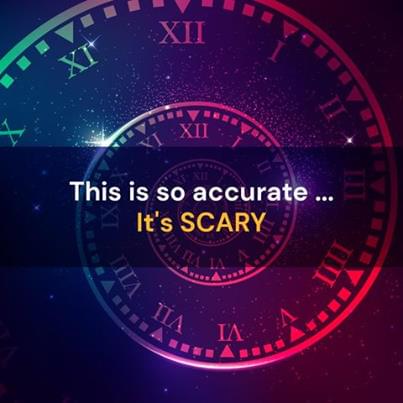Name asteroids in astrology refer to a set of asteroids that have been named after figures from mythology or history.
Name asteroids are thought to have an influence on a person’s character and personality, similar to the way planets do. They are considered less important than the traditional “personal” planets (Sun, Moon, Mercury, Venus, Mars, Jupiter, and Saturn) in chart interpretation, but they can still provide valuable insight into a person’s character and how they relate to others.
They can reveal dynamics in relationships, indicate natural talents and abilities, guide career choices, and indicate potential challenges in the workplace.
Name asteroids are an interesting way to understand oneself and the world around us, and a great tool for astrological chart interpretation.
DON’T MISS THIS! Are you ready to discover the cosmic secrets of your birth chart? Click here and unlock the mysteries of the universe with this trusted astrology service. Don’t miss out!
Historical Origins of Name Asteroids
Name asteroids are named after important figures from history and myths. These figures were important people from long ago and the asteroids were named after them to make it easier to remember what they stand for. The asteroids were named a long time ago and some of the names have changed over time.
For example, Ceres is named after the Roman goddess of agriculture. Pallas is named after the Greek goddess of wisdom. And Vesta is named after the Roman goddess of the hearth.
The asteroids were named after these important figures to help us remember what they stand for. The figures they are named after having special powers and abilities, and the asteroids are thought to have similar powers.
Understanding Name Asteroids in Astrology
Name asteroids can tell us a lot about ourselves in astrology. Astrology is the study of how the stars and planets affect our lives. Name asteroids play a role in understanding our charts, which are like a map of the stars and planets when we were born. They can show us our personality and character.
Name asteroids are not as important as the bigger planets in our chart, like the Sun, Moon, and Jupiter. But they can still give us important information. For example, Ceres can show us how we feel about taking care of others, Pallas can show us how wise we are, and Vesta can show us how we feel about our home and family.
It’s like looking at a puzzle, each piece gives us a little more information about ourselves and how we fit in the world. Understanding name asteroids can help us understand ourselves better and how we interact with others.
Examples of Name Asteroids

Let’s have a look at some different examples of Name Asteroids:
- Ceres – Named after the Roman goddess of agriculture, Ceres is associated with nurturing, caregiving, and motherhood. In astrology, Ceres can indicate a person’s ability to nurture and care for others, as well as their relationship with their own mother or mother figures.
- Pallas – Named after the Greek goddess of wisdom, Pallas is associated with intelligence, strategy, and decision-making. In astrology, Pallas can indicate a person’s ability to think critically and make wise decisions.
- Vesta – Named after the Roman goddess of the hearth, Vesta is associated with home, family, and devotion. In astrology, Vesta can indicate a person’s relationship with their home and family, as well as their sense of devotion and commitment to their relationships and goals.
- Juno – Named after the Roman goddess of marriage, Juno is associated with relationships, partnerships, and commitment. In astrology, Juno can indicate a person’s ability to form strong, committed relationships and their attitude towards commitment.
- Hygeia – Named after the Greek goddess of health and hygiene, Hygeia is associated with health and well-being. In astrology, Hygeia can indicate a person’s relationship with their own health and the health of those around them.
- Eros – Named after the Greek god of love, Eros is associated with love, desire, and sexual attraction. In astrology, Eros can indicate a person’s ability to form passionate, romantic relationships and their level of sexual desire.
- Psyche – Named after the Greek goddess of the soul, Psyche is associated with the inner self, emotions, and psyche. In astrology, the Psyche can indicate a person’s level of emotional intelligence and understanding of their own inner self.
- Aphrodite – Named after the Greek goddess of love and beauty, Aphrodite is associated with beauty, love, and sensuality. In astrology, Aphrodite can indicate a person’s relationship with beauty, their ability to attract love, and their level of sensuality.
- Nemesis – Named after the Greek goddess of retribution, Nemesis is associated with justice, balance, and fairness. In astrology, Nemesis can indicate a person’s sense of fairness and justice and their ability to maintain balance in their relationships and interactions.
- Chiron – Named after the centaur teacher of heroes in Greek mythology, Chiron is associated with healing, teaching, and mentoring. In astrology, Chiron can indicate a person’s ability to heal themselves and others, their teaching and mentoring potential, and their capacity for self-discovery.
- Athena – Named after the Greek goddess of wisdom, warfare, and crafts, Athena is associated with wisdom, strategy, and intelligence. In astrology, Athena can indicate a person’s ability to think critically, plan strategically, and make wise decisions.
- Jupiter – Named after the Roman king of the gods, Jupiter is associated with good fortune, expansion, and growth. In astrology, Jupiter can indicate a person’s ability to attract good luck and abundance and their capacity for growth and expansion in different areas of their lives.
- Narcissus – Named after the Greek mythological figure, Narcissus is associated with vanity, self-obsession, and self-love. In astrology, Narcissus can indicate a person’s level of self-obsession, their relationship with their own image, and their tendency to be vain or self-centered.
- Apollo – Named after the Greek god of the Sun, poetry, music, and prophecy, Apollo is associated with creativity, inspiration, and prophecy. In astrology, Apollo can indicate a person’s ability to express themselves creatively, their level of inspiration, and their capacity for prophecy and divination.
- Osiris – Named after the Egyptian god of the afterlife, Osiris is associated with death, rebirth, and transformation. In astrology, Osiris can indicate a person’s ability to process and accept death, their readiness for rebirth and transformation, and their understanding of the afterlife.
- Mars – Named after the Roman god of war, Mars is associated with energy, action, and aggression. In astrology, Mars can indicate a person’s level of energy, their ability to take action and their tendency to be aggressive or assertive.
- Mercury – Named after the Roman god of commerce, Mercury is associated with communication, travel and trade. In astrology, Mercury can indicate a person’s ability to communicate effectively, their love for travel, and their potential for success in commerce and business.
- Venus – Named after the Roman goddess of love and beauty, Venus is associated with love, beauty, and sensuality. In astrology, Venus can indicate a person’s ability to attract love, their relationship with beauty, and their level of sensuality.
- Saturn – Named after the Roman god of agriculture, Saturn is associated with structure, discipline, and responsibility. In astrology, Saturn can indicate a person’s ability to create structure and discipline in their lives, their sense of responsibility, and their ability to handle difficult situations.
- Pluto – Named after the Roman god of the underworld, Pluto is associated with transformation, power, and hidden truths. In astrology, Pluto can indicate a person’s capacity for profound transformation, their understanding of power dynamics, and their ability to uncover hidden truths.
- Uranus – Named after the Greek god of the sky and the heavens, Uranus is associated with innovation, revolution, and change. In astrology, Uranus can indicate a person’s ability to bring about change and innovation, their tendency to be unconventional, and their potential for being a revolutionary.
- Neptune – Named after the Roman god of the sea, Neptune is associated with intuition, spirituality, and transcendence. In astrology, Neptune can indicate a person’s level of intuition, spiritual understanding, and ability to transcend the physical world.
- Sun – Named after the center of the solar system, the Sun is associated with the self, ego, and vitality. In astrology, The sun can indicate a person’s sense of self, their level of confidence, and their ability to radiate energy and vitality.
- Moon – Named after the natural satellite of the Earth, the Moon is associated with emotions, intuition, and the unconscious. In astrology, The moon can indicate a person’s emotional state, their level of intuition, and their understanding of the unconscious mind.
- Lilith – Named after the Sumerian demoness of the night, Lilith is associated with independence, rebellion, and sexuality. In astrology, Lilith can indicate a person’s level of independence, their tendency to rebel against societal norms, and their understanding of their own sexuality.
- Eurydice – Named after the Greek mythological figure, Eurydice is associated with love, devotion, and sacrifice. In astrology, Eurydice can indicate a person’s ability to love deeply and devotedly, their willingness to sacrifice for their loved ones, and their understanding of the complexities of love.
- Prometheus – Named after the Greek god of fire, Prometheus is associated with intelligence, creativity, and rebellion. In astrology, Prometheus can indicate a person’s ability to think critically, their creative potential, and their tendency to rebel against authority and tradition.
- Medusa – Named after the Greek mythological figure, Medusa is associated with fear, power, and transformation. In astrology, Medusa can indicate a person’s ability to confront and overcome fear, their understanding of power dynamics, and their potential for profound transformation.
- Pan – Named after the Greek god of wild nature, Pan is associated with freedom, spontaneity, and wildness. In astrology, Pan can indicate a person’s desire for freedom and spontaneity, their connection to wild nature, and their ability to let go and live in the moment.
- Helios – Named after the Greek god of the Sun, Helios is associated with light, vitality, and life force. In astrology, Helios can indicate a person’s ability to radiate light and vitality, their connection to their own life force, and their ability to bring light and warmth to others.
- Artemis – Named after the Greek goddess of the wilderness, hunting, and childbirth, Artemis is associated with independence, self-reliance, and femininity. In astrology, Artemis can indicate a person’s ability to be independent, and self-reliant, their connection to their own femininity, and their love for nature.
- Dionysus – Named after the Greek god of wine, ritual madness, and fertility, Dionysus is associated with pleasure, spontaneity, and emotional expression. In astrology, Dionysus can indicate a person’s ability to enjoy life, their tendency towards spontaneity, their connection to their emotions, and their capacity for emotional expression.
- Proserpina – Named after the Roman goddess of agriculture and fertility, Proserpina is associated with growth, fertility, and abundance. In astrology, Proserpina can indicate a person’s ability to create growth and abundance in their lives, their understanding of fertility, and their relationship with nature.
- Tiamat – Named after the Mesopotamian goddess of saltwater and chaos, Tiamat is associated with primal energy, chaos, and destruction. In astrology, Tiamat can indicate a person’s ability to tap into primal energy, their understanding of chaos, and their potential for both destruction and renewal.
- Ares – Named after the Greek god of war, Ares is associated with courage, bravery, and aggression. In astrology, Ares can indicate a person’s ability to be courageous and brave, their tendency towards aggression, and their potential for physical strength and martial prowess.
- Mercury – Named after the Roman messenger god, Mercury is associated with communication, transportation, and commerce. In astrology, Mercury can indicate a person’s ability to communicate effectively, their love for travel, and their potential for success in business and commerce.
- Hecate – Named after the Greek goddess of witchcraft, Hecate is associated with magic, witchcraft, and the occult. In astrology, Hecate can indicate a person’s understanding of magic and the occult, their connection to witchcraft, and their ability to tap into hidden knowledge and unseen realms.
The 12 Houses and Their Name Asteroids
Now let’s take a closer look at the 12 houses and their name asteroid:
- 1st House (Ascendant): The 1st house represents the self, the ego, and the physical body. Name asteroids associated with this house may include the Sun, which represents the sense of self, and Mars, which represents energy and action.
- 2nd House: The 2nd house represents material possessions, money, and self-worth. Name asteroids associated with this house may include Ceres, which represents nurturing and caregiving, and Venus, which represents love and beauty.
- 3rd House: The 3rd house represents communication, learning, and the mind. Name asteroids associated with this house may include Pallas, which represents intelligence and strategy, and Mercury, which represents communication and transportation.
- 4th House: The 4th house represents home, family, and emotional security. Name asteroids associated with this house may include Vesta, which represents home and family, and Ceres, which represents nurturing and caregiving.
- 5th House: The 5th house represents creativity, love, and children. Name asteroids associated with this house may include Eros, which represents love and desire, and Aphrodite, which represents beauty and sensuality.
- 6th House: The 6th house represents health, work, and service. Name asteroids associated with this house may include Hygeia, which represents health and well-being, and Chiron, which represents healing and mentoring.
- 7th House: The 7th house represents relationships, partnerships, and marriage. Name asteroids associated with this house may include Juno, which represents relationships and partnerships, and Eros, which represents love and desire.
- 8th House: The 8th house represents transformation, death, and rebirth. Name asteroids associated with this house may include Pluto, which represents transformation, power, and hidden truths, and Osiris which represents death and rebirth.
- 9th House: The 9th house represents higher education, travel, and philosophy. Name asteroids associated with this house may include Apollo, which represents creativity and inspiration, and Jupiter, which represents good fortune and growth.
- 10th House (Midheaven): The 10th house represents career, public life, and reputation. Name asteroids associated with this house may include Pallas, which represents intelligence and strategy, and Athena, which represents wisdom, warfare, and crafts.
- 11th House: The 11th house represents friends, community, and hopes and wishes. Name asteroids associated with this house may include Nemesis, which represents justice, balance, and fairness, and Pan, which represents freedom and spontaneity.
- 12th House: The 12th house represents the unconscious, secrets, and endings. Name asteroids associated with this house may include Lilith, which represents independence, rebellion, and sexuality, and Hecate, which represents magic, witchcraft, and the occult.
Name Asteroids in Relationship Astrology
Name asteroids can also tell us a lot about the relationships we have with others. They can show us how we get along with others and what kind of dynamics are in our relationships.
For example, if we have strong Ceres in our chart, it means that we like to take care of others, and we will probably be a good caretakers in our relationships. If we have strong Pallas, it means we are wise and good at making decisions, and this can help us in our relationships.
Name asteroids can also help us understand if we are compatible with someone else. If two people have strong Ceres in their chart, they will likely be good at taking care of each other. If two people have strong Vesta, they will likely be good at creating a warm and loving home together.
But name asteroids can also show us potential conflict areas in our relationships. For example, if one person has a strong Pallas and the other person has a weak Pallas, it might mean that one person will make most of the decisions and the other person might feel left out.
Understanding name asteroids can help us understand our relationships better and work through any challenges we might have.
Name Asteroids in Career Astrology

Name asteroids can also give us clues about our careers and what we are good at. They can show us what our natural talents and abilities are, and what kind of jobs we might be good at.
For example, if we have strong Ceres in our chart, we might be good at taking care of others and would be good nurses or caregivers. If we have strong Pallas, we might be good at making decisions and might be good managers or leaders.
Name asteroids can also help us when we are trying to decide what kind of job we want to do. If we have a strong Ceres, we might want a job where we can take care of others. If we have a strong Vesta, we might want a job where we can work with our hands and create something.
But name asteroids can also show us potential challenges in our careers. For example, if we have weak Pallas, we might have trouble making decisions and might need someone to guide us. If we have a weak Vesta, we might have trouble staying focused and might need to work on our focus.
Understanding name asteroids can help us find a job that we will be good at and enjoy.
Conclusion
So, to summarize, name asteroids in astrology can provide valuable insights into different areas of life, such as relationships, careers, health, and more.
Name asteroids can indicate natural talents and abilities, potential challenges, and areas of compatibility. Understanding the meaning and association of different name asteroids can help us understand our own chart and the dynamics in our relationships and interactions.
Additionally, the placement of name asteroids in the houses of a chart can offer further insights into how these energies play out in different areas of life.
Overall, name asteroids can be a powerful tool for self-discovery and understanding in astrology.


